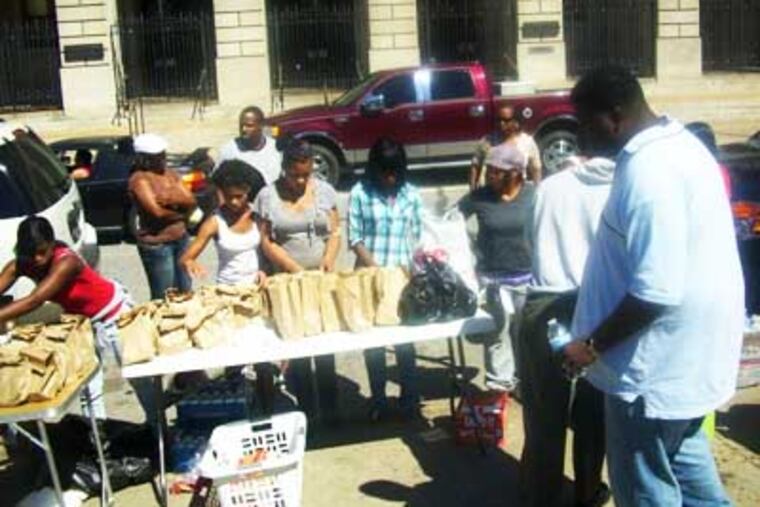It's better to feed the homeless indoors
For groups defying Mayor Nutter's sensible ban on open-air feedings of the homeless along the Benjamin Franklin Parkway, it may well be a social or religious calling to help desperate men and women gathered at one of the city's marquee public spaces. But it's hard to see how such a mission legally can trump the city's health and safety regulations. Nor are random feedings an improvement over the mayor's sound goal of moving these actitivities indoors, where the homeless can be linked with services to get them back on their feet.

For groups defying Mayor Nutter's sensible ban on open-air feedings of the homeless along the Benjamin Franklin Parkway, it may well be a social or religious calling to help desperate men and women gathered at one of the city's marquee public spaces.
But it's hard to see how such a mission legally can trump the city's health and safety regulations. Nor are random feedings an improvement over the mayor's sound goal of moving these actitivities indoors, where the homeless can be linked with services to get them back on their feet.
As a federal judge hears oral arguments Thursday in a legal challenge to the city's June 1 implementation of its al fresco dining limits, the hope is that the legal issues stay front and center. Religious arguments have a place, but not in these proceedings.
U.S. District Judge William H. Yohn Jr. heard heartfelt testimony this week from homeless advocates motivated by their faith, but the central issue before Yohn is whether it's within the city's right — as well as its duty — to safeguard such public settings.
Clearly, it must be. Indeed, city parks and recreation chief Michael DiBerardinis noted in court that if the homeless feedings become unregulated, they would be the only major Parkway event not subject to some rules.
Pioneering homeless advocate Sister Mary Scullion contends the city is wasting time "on regulating and policing … groups seeking to help those in need" amid state cutbacks on safety-net programs. Scullion probably is right that homelessness will grow under such austerity measures, but that's more reason to pursue Nutter's initiative.
When more groups agree to combine forces with existing indoor missions — or set up additional dining centers — more troubled individuals will be able to eat with greater dignity and have a better chance to rebuild their lives.